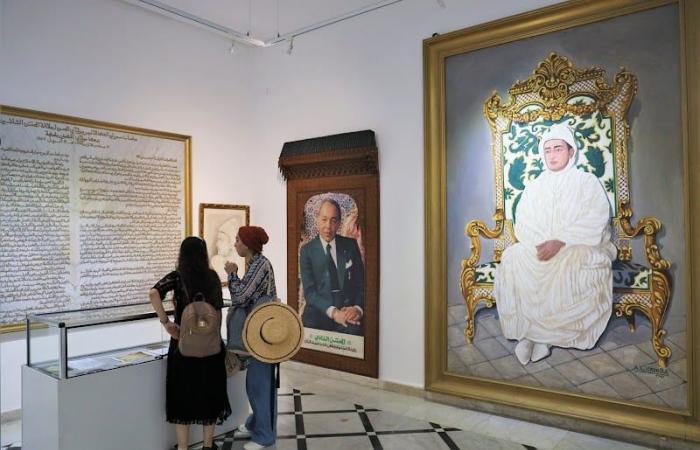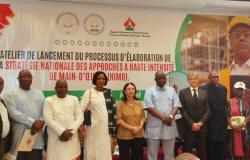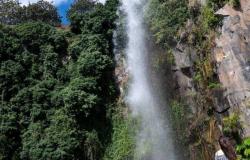Tomorrow, Monday, the Moroccan people will commemorate the sixty-ninth anniversary of the glorious Independence Day, which embodied the highest meanings of cohesion between the Alawite throne and the Moroccan people in the epic struggle to defend the unity, sovereignty and sanctities of the country.
This glorious anniversary is considered a well-established milestone in the history of the Kingdom and in the conscience of all Moroccans, because it carries profound connotations and high value, and is an occasion to recall the historical context of this great event, which reflects true patriotism in its highest and most sublime manifestations, and embodies the victory of the will of the throne and the people and their close fusion for liberation from colonialism and the establishment of… He established an independent and unified Morocco that envisions a bright future for its children.
Peoples do not mature and expand their ambitions to build their present and future except by recalling their history, approaching its moments of struggle, and its battles for survival and continuity, highlighting its distinctive entity among nations, and drawing lessons from its various stations, in order to dedicate the force of attraction in the past and present moments towards a future that strives for the best.
One of the most prominent historical milestones that characterized the path of the national struggle was the historic visit made by the father of nationalism and the hero of liberation, the late King Mohammed V, to Tangier on April 9, 1947, as an affirmation of the attachment of Morocco, as king and people, to the freedom of the nation, its territorial integrity, and its adherence to its components and identity.
One of the masterpieces of the national struggle is what the National Movement did at the beginning of the thirties by moving to political struggle and national action aimed primarily at spreading national awareness, strengthening resolve, and stoking enthusiasm among the youth and within all segments and classes of Moroccan society. The National Movement also worked to introduce the Moroccan issue in international forums. This had a shock effect on the foreign presence, which was confronting the national political struggle with arbitrary measures and plans opposed to the liberal thought that the national movement adopted in interaction and harmony with the father of the nation and the hero of liberation and independence, the late King Mohammed V.
The colonizer did not succeed in stopping this tide of struggle, which was then deeply rooted in all Moroccans, despite King Mohammed V’s exile, along with his honorable family, to Corsica and then to Madagascar. This was demonstrated by the massive uprising that occurred in all Moroccan cities and villages in its aftermath.
All parts of the Kingdom witnessed many heroic battles and popular uprisings that embodied the resistance of the Moroccan people to foreign presence and colonial domination. The most prominent of these are the battles of Al-Hri, Anwal, Bougafar, Jebel Badou, Sidi Bou Othman, the uprising of the Ait Baamrane tribes, the southern provinces, and other historical stations in which the resistance fighters taught the colonial forces eloquent lessons in steadfastness and sacrifice.
As a moment of unity for the nation, reflecting the memory of the courageous struggle of a people united behind their king, the spark of the revolution of the king and the people was launched on August 20, 1953, the celebration of which is an opportunity for the rising generations to realize the magnitude of the sacrifices made by their ancestors to liberate themselves from the oppression of colonialism and to restore Morocco to its independence.
The strong will of the nation triumphed, in harmony with the throne, to defend sacred national values, against the plans of the colonizer, who did not realize that by exiling the symbol of the nation, King Mohammed V, and his honorable family, he had only inflamed Moroccan patriotism and hastened the end of the era of confinement and protection.
Immediately upon the return of King Mohammed V, accompanied by his royal family, on November 18, 1955, from exile to the homeland, the Moroccan king announced the end of the French protectorate system and the dawn of freedom and independence, thus embodying the transition from the battle of the lesser jihad to the battle of the greater jihad and the victory of the revolution of the king and the people.
Independence constituted a clear victory and a decisive historical event, crowning with glory the stages of the bitter struggle that followed one another and had many forms and forms in the face of the colonial presence imposed since March 30, 1912. The Kingdom of Morocco entered a new era, represented by the famous saying of the late King Mohammed V, may God rest his soul: “ We have gone from the smaller jihad to the larger jihad,” as the Kingdom engaged in many reforms launched by the Father of the Nation, affecting all vital sectors in order to build the new Morocco and continue the saga of achieving territorial unity.
Following in the footsteps of his father, King Hassan II fought the battle to complete territorial unity. During his reign, the city of Sidi Ifni was recovered on June 30, 1969, and the recovery of the southern provinces was also achieved thanks to the Green March that began on November 6, 1975. In addition, King Hassan II was keen to Building the state of law and modern institutions, and establishing an exemplary political and democratic system.
In order to consolidate the construction process undertaken by King Mohammed V and after him King Hassan II, Morocco’s modernization workshops continue today, during the reign of King Mohammed VI. At the forefront is defending the territorial integrity of the Kingdom, and achieving sustainable economic and social development that guarantees every citizen a decent living, and elevates the Kingdom to the ranks of countries that make the human element the focus of its economic and social policy.
The celebration of Independence Day represents a moment for a contemplative pause that recalls the history of Morocco, which is rich in glories and bright milestones in order to defend the country’s sanctities, and an opportunity to draw inspiration from the lofty values and noble goals that this anniversary abounds, to fuel comprehensive mobilization, cultivate the spirit of citizenship, fortify democratic gains, and continue the path of independence. The Great Jihad, consolidating and preserving the territorial integrity of Morocco, and linking the ancient past with the glorious present and promising future.






